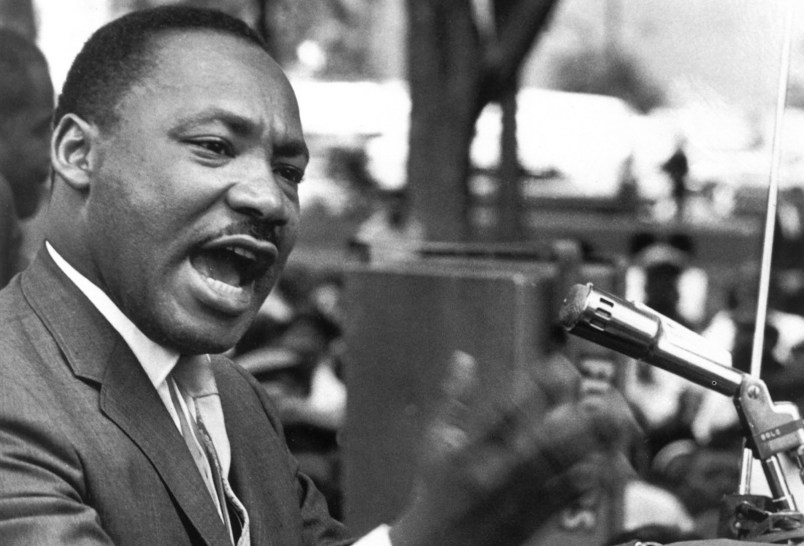On Martin Luther King Jr. Day, millions of Americans will celebrate Dr. King’s unwavering commitment to the philosophy of nonviolence in pursuit of social justice. This year, however, we should also recall one of King’s most penetrating political insights: when it comes to protecting voting rights, there is no substitute for congressional action.
In the 1950s and early 1960s, large numbers of African Americans across the American South tried to register to vote, only to by turned back by militant opposition and an ever-shifting barricade of bureaucratic obstacles. Civil rights activists repeatedly challenged discriminatory voting laws and practices in the federal courts. But this approach was extremely inefficient: every time civil rights activists won a legal victory, recalcitrant state and local governments simply adopted new discriminatory measures.
Realizing that the voting rights movement was treading water, King changed tactics, adopting a protest strategy aimed at securing congressional protection for the right to vote. The historic protest in Selma, Alabama, which dramatized the denial of voting rights to African Americans, paved the way to enactment of the Voting Rights Act of 1965. The law’s most important provision required states with dubious civil rights records to “pre-clear” proposed voting laws with the Department of Justice or the federal courts.
Today, nearly 50 years after King’s triumph, congressional action to protect voting rights is needed more than ever. In last June’s Shelby County v. Holder decision, the conservative Supreme Court majority invalidated the Voting Rights Act’s “preclearance” provisions. Since that time, several southern states controlled by conservative Republican majorities, most notably Texas and North Carolina, have enacted draconian voting requirements that are expected to suppress turnout among African Americans and Latinos.
The Obama administration has sued to block implementation of these laws, but it is unclear whether it will prevail. Even if the administration wins these suits, proponents of voting rights will still be forced to return to court again and again to challenge new restrictive voting laws as they arise, just as they were before the Voting Rights Act was passed.
Only Congress can overcome this impasse. Americans who believe that the right of every citizen to vote is inviolable must insist that Congress work to reinvigorate federal voting rights protections.
Admittedly, revitalizing the Voting Rights Act and restoring its preclearance provisions in today’s polarized Congress is no easy task. But supporters of voting rights should not lose heart. In 2006, a highly polarized Congress passed a muscular extension of the Voting Rights Act, even though conservative Republicans controlled the presidency and both houses of Congress. Congressional Democrats exploited Republicans’ unwillingness to vote against voting rights legislation in an election year to win an important victory. In 2014, with another midterm election looming, they could do the same.
Some argue that no new voting legislation is needed. Indeed, when the Supreme Court held oral arguments on the Voting Right Act in 2013, Chief Justice John Roberts made the pointed observation that Massachusetts has a voting gap between African American and white voters that rivals that in Deep South Mississippi. Yet observing that racial disparities in voting can occur in the North does not prove that voting protections in the South are unnecessary. It shows we need them everywhere.
Congress, then, has two paths forward. At minimum, voting rights supporters can get behind the new Voting Rights Act fix announced last week by Representatives Jim Sensenbrenner (R-WI) and John Conyers (D-MI) and Senator Patrick Leahy (D-VT).
The new bill would restore preclearance for Georgia, Louisiana, Mississippi and Texas. The bill makes it easier everywhere else to go to court to temporarily block new election rule changes and also makes it easier to go to court to get a state added to the preclearance list if it has a history of repeat offenses. But the bill exempts Voter ID provisions from scrutiny.
While the proposed fix is an essential first step, it does not go nearly far enough. A future Congress could require every state ensure that each citizen is registered and has ample opportunity to vote without having to face unnecessary administrative hurdles or long lines at the polls.
Congress may fail to pass legislation this session. But advocates must make the issue matter on the national agenda, so that Members of Congress who oppose strong voting rights legislation are made to pay a political cost.
Of course, even if Congress does enact new voting rights legislation, the Supreme Court’s conservative majority could strike it down again. Fear of an adverse Supreme Court ruling must not stop Congress – and especially congressional Democrats – from trying, however. The status quo – case-by-case challenges to discriminatory voting laws – is extremely costly and painfully slow, and hence unsustainable.
As King realized decades ago, only congressional action can secure the right to vote for millions of American citizens. It’s time for members of Congress – and all those who care about the health of American democracy – to heed that lesson.
Jesse H. Rhodes is a professor of Political Science at the University of Massachusetts, Amherst. Avi Green is Director of Civic Outreach and Co-Chair of the Working Group on Protecting and Expanding the Right to Vote at the Scholars Strategy Network.






